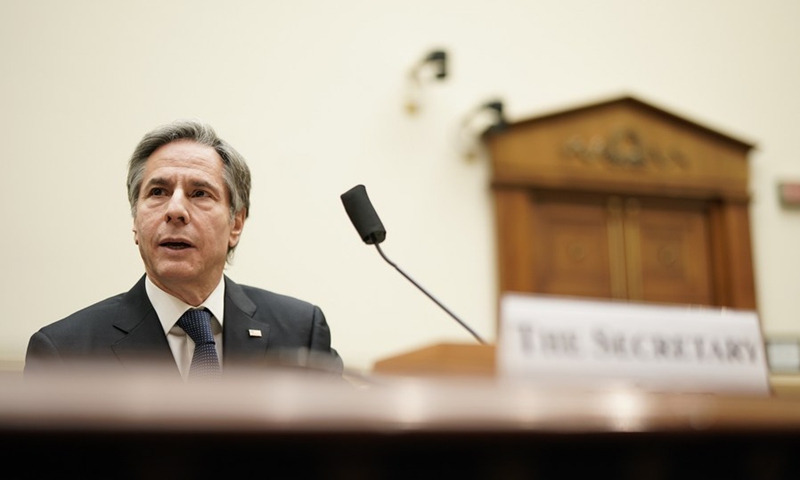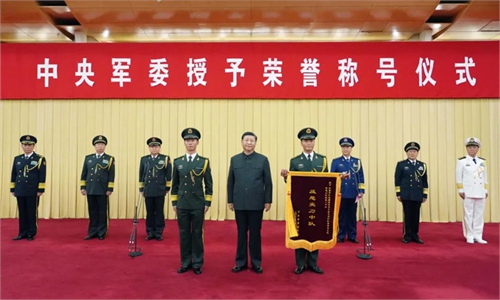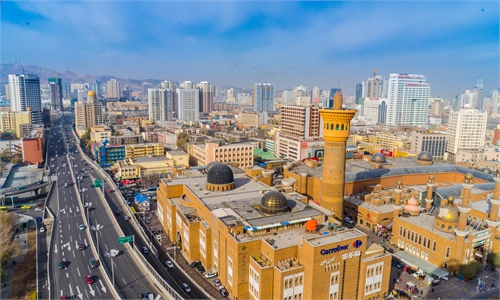
U.S. Secretary of State Antony Blinken testifies before U.S. House Committee on Foreign Affairs on Capitol Hill in Washington, D.C., on March 10, 2021.(Photo: Xinhua)
One day after the 12th anniversary of the July 5 riots in Urumqi, Northwest China's Xinjiang Uygur Autonomous Region, US Secretary of State Antony Blinken on Tuesday held a virtual meeting with a few Uygurs "who were detained in camps" in Xinjiang. The State Department later said the US has worked with allies and partners in calling for an end to China's "ongoing crimes against humanity."Blinken was not unaware of the heinous acts of violence and terrorism that took place in Xinjiang. But he still played the "Xinjiang card." Such a political stunt is to promote the US' human rights diplomacy, and Washington is calling white black and trampling on China's sovereignty. Blinken and some other US politicians are standing opposed to all people in Xinjiang and even the ethics of the entire human race.
Just days before Blinken's political stunt, more than 500 shootings happened across the US during the Fourth of July weekend and at least 233 people were killed, according to CNN on Tuesday. "The US interferes in the Xinjiang issue, then does it mean other countries can also support the US' gun violence? And does it mean other countries can criticize the US government's curb of the storming of the US Capitol on January 6?" Yang Xiyu, a senior research fellow at the China Institute of International Studies, told the Global Times on Wednesday.
Xinjiang's vocational education and training centers aimed at deradicalization and helped trainees acquire a better education and vocational skills and find employment. Trainees have all graduated from the training centers by 2019. Since the opening of the training centers, violent and terrorist activities have gradually disappeared in Xinjiang. The absolute poverty issue in Xinjiang has been solved historically and 3.09 million people have been lifted out of poverty given the current poverty line.
"The US' values are not based on merit, but on US politicians' interests. The US' human rights diplomacy is a unilateral hegemonic act that tramples on the international norms underpinned by the UN Charter. This is a serious violation of China's sovereignty," Yang said.
Xinjiang's prosperity and stability is in sharp contrast with Afghanistan which neighbors China's Xinjiang. China has taken firm measures in Xinjiang's governance, which has kept the region away from the chaos like those of neighboring countries. While in Afghanistan, the US' irresponsible withdrawal will further aggravate the country's chaos and even stimulate extreme terrorist forces.
It seems that Blinken and some other US politicians want Xinjiang to become chaotic again. This is to stand against all the people in Xinjiang. Of all the developing countries that the West has intervened in, none of them ended in peace and stability. Just look at Afghanistan, Iraq, Libya and Syria.
Opposing China on the Xinjiang issue is not only an anti-China move, but also standing on the opposite side of human morality. Many civilians and policemen died during the previous riots in Xinjiang, and it is an anti-human approach to support murderers as if they were victims. If Washington accuses China of "crime against humanity" in Xinjiang, then shouldn't it support the storming of US Capitol and the terrorist incidents in the West?
By playing the "Xinjiang card," Washington has exposed its injustice to the world. Only a small circle of countries followed the US on the Xinjiang issue. On June 22, more than 90 countries expressed their support and understanding to China's stance and 65 of them clearly opposed interference with China's domestic affairs in Xinjiang, Hong Kong and Tibet under the excuse of human rights. Fairness is in the hearts of most people. China has stated its solemn position and detailed the facts of the Xinjiang issue for many times, but it is impossible to wake up those who pretend to be asleep.
History will make a fair judgment on Xinjiang's governance, and this is not based on the will of Western politicians such as Blinken. The US and other Western countries better pay more attention to their own chaotic race, immigration and religious issues. Xinjiang's successful experience can be used as a reference for them.



